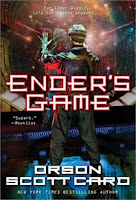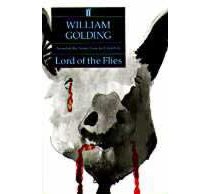It has been so much fun! Sobering events in the last few make it even more desirable to imagine that the world could change drastically. (Obviously imagining the world away is not the solution; yet a break is still deeply appreciated.) Onto nicer thoughts...
I have read three books -- a classic of Science Fiction Ender's Game (Orson Scott Card), a comedic one, The Hitchhiker's Guide to the Galaxy (Douglas Adams) and a present day sci-fi, Wake (Robert J. Sawyer). What a lovely cross-section, no?
Reading Ender's Game is like reading a intro to Science Fiction. And it did what I never expect Science Fiction to do: grabbed my attention and held it. I did social sciences in school -- I naturally am (geekily) enthralled by history, politics, trivia. But futuristic claims? Not what I'm used to. Ender's Game, friends. So great. Here's what Science Fiction does that I love: using more far-fetched realities it creates real commentaries on our current society. Most are built on the premise that in the future our problems will move to deeper extremes. Thus, reading these books that exist in the 'extremes' of society helps to illuminate our own current problems. When you read a book set in distant future and it seems to be pretty truthful to what is happening in present day (especially around propaganda), you know it is good. Ender had characters that I grew with, plot turns that were widely unexpected and a full, complete story. I found myself really wanting to talk to people about it which is definitely the mark of a book that has surprised and enthralled me. A great gift the reader in your life (which might be you) but also for a teenager -- boy or girl.

Hitchhiker's Guide to the Galaxy (HGG) is essentially reading a British comedy. Think of reading Run Fat Boy Run or Death at a Funeral (if you haven't seen those movies, you really should). It's hilarious, slightly irreverent and quippy. Thoroughly enjoyed this book. It's commentary isn't subtle at all, but well worth reading anyway. And you'll learn the answer to the eternal question. What more could you ask?
 Finally, Wake. This book was probably the biggest stretch for me (didn't have the far-off futuristicness of Ender's Game or the humour of HGG). Set in present day Waterloo, Ontario Wake follows the story of 15 year old Caitlin, who is about to make some huge discoveries about the world and the Internet. It weaves several disparate stories into one (albeit not quite -- this is the first book in the series and few pieces have been left hanging) which is a style I enjoy. I'm good with switching around and trying to perceive where all the stories will intersect. Some of the Canadian/math/physics humour was a bit on-the-nose for me. My big beef? I don't like it when I have to read more books to get to the ending. I like books that tells its own story and then I can choose to go farther if I want. That being said, I totally want to know how it ends.
Finally, Wake. This book was probably the biggest stretch for me (didn't have the far-off futuristicness of Ender's Game or the humour of HGG). Set in present day Waterloo, Ontario Wake follows the story of 15 year old Caitlin, who is about to make some huge discoveries about the world and the Internet. It weaves several disparate stories into one (albeit not quite -- this is the first book in the series and few pieces have been left hanging) which is a style I enjoy. I'm good with switching around and trying to perceive where all the stories will intersect. Some of the Canadian/math/physics humour was a bit on-the-nose for me. My big beef? I don't like it when I have to read more books to get to the ending. I like books that tells its own story and then I can choose to go farther if I want. That being said, I totally want to know how it ends. There is something about the Sci-Fi genre that loves a sequel. All of these books are the first of series. But with Ender's Game and HGG I have been warned several times that the subsequent books aren't worth reading. This is my PSA not to read the rest of those series. With Wake, you can check in later. I'm going to have to read the next two to find out what happens.
Any recommendations of Sci-Fi reads? Based on these three, I'm open to what the genre has to offer. And yes, I have read Pride and Prejudice and Zombies. And yes, it is awesome.























